Contributing $ 23
Struggle
A personalized thank you letter or email from the hospital, including a short story about how your support is making a difference.

> 15 Co-financiers
Goteo ha construido una historia única en el mundo del micromecenazgo. ¿Quieres seguir formando parte de ella?
Teaching life, saving lives
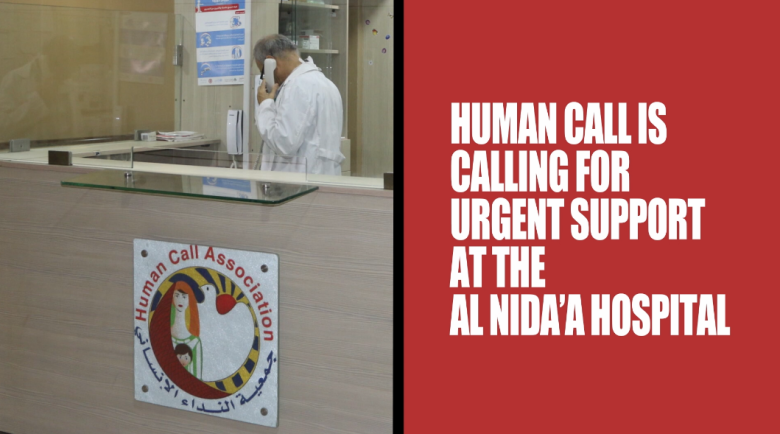

 Min.
Min.
 Opt.
Opt.
A personalized thank you letter or email from the hospital, including a short story about how your support is making a difference.

A personalized thank you letter or email from the hospital, including a short story about how your support is making a difference. + A digital “Supporter” certificate, recognizing the donor’s contribution.

A personalized thank you letter or email from the hospital, including a short story about how their support is making a difference. + A digital “Supporter” certificate, recognizing the donor’s contribution + A video message from a hospital staff member or healthcare worker, thanking them for their support.

A personalized thank you letter or email from the hospital, including a short story about how your support is making a difference. + A digital “Supporter” certificate, recognizing the donor’s contribution + A video message from a hospital staff member or healthcare worker, thanking them for their support. + Recognition as a major donor on the hospital’s digital donor wall.

Recognition as a major donor on the hospital's digital donor wall. + Personal thanks from the hospital director.

Recognition as a major donor on the hospital's digital donor wall. + Personal thanks from the hospital director.

Collaborate with the health emergency plan for Palestinians in the refugee camps in Lebanon.
 Materyal
Materyal
|
Minimum | Optimum |
|---|---|---|
|
Fuel for the generator
Fuel to ensure the generator can run 24/7 for 15 days
|
$ 5,861 | |
|
Medical supplies
Medicines and medical supplies for 15 days
|
$ 5,275 | |
|
Fuel for the generator
Fuel to ensure the generator can run 24/7
|
$ 42,199 | |
|
Medical supplies
Medicines, medical supplies and laboratory kits
|
$ 52,749 | |
|
Support for the first aid team
Fuel for 4 ambulances for one month
|
$ 13,129 |
 Task
Task
|
Minimum | Optimum |
|---|---|---|
|
Rewards management and commissions
6% for services provided by Goteo and 2% associated with economic transactions
|
$ 891 | |
|
Incentives for volunteers
Coverage of diets and basic needs when they are in the hospital
|
$ 18,990 | |
|
Staff
Salaries for a total of 60 workers and diet for 30 volunteers
|
$ 48,646 | |
| Total | $ 12,027 | $ 187,740 |
“We teach life, sir.
We Palestinians teach life after they have occupied the last sky.
We teach life after they have built their settlements and apartheid walls, after the last skies.”
Rafeef Ziadah, Palestine poet
Recent attacks by Israel in Lebanon have resulted in numerous deaths and injuries across the country. The precarious Lebanese healthcare infrastructure is overwhelmed and cannot meet the emergency health needs. Moreover, considering the refugee status of Palesinians in Lebanon, they have been excluded from the emergency plan developed by the government. In response, the Human Call Association, established by Palestinians in Ein El Hilweh camp, is making and international appeal to strengthen the capacity of Al Nida’a Hospital to care for the mass influx of injured individuals.
The primary goal of this project is to ensure the proper functioning of the hospital by procuring the necessary fuel to keep the generator running 24 hours per day (note that in Lebanon they never had 24 hours of electricity, but due to the ongoing financial and economic crisis that the country faces since 2019, the government do not proportionate more than 2 to 3 hours of electricity per day, and the hospital cannot benefit from it because it consumption exceeds the supply). Additionally, the project aims to provide essential medical supplies to handle the anticipated surge of patients due to the ongoing escalation attacks in the country, including those targeting the refugee camp itself.
Al Nida’a hospital is the only facility of its kind in the camp. While there are clinics available, none can provide the full range of health services offered by this hospital. In Ein el Hilweh different religious and political sensitivities coexist. Over its more than thirty years of existence, the hospital has earned respect as a neutral space among all these groups.
More than 500.000 Palestinian individuals live as refugees in Lebanon. They are marginalized, confined to refugee camps, and lack full civil and social rights. They are part of the estimated 7 million Palestinian refugees worldwide (5 million registered with UNRWA) and among the more than 117 million people forced to flee their countries. Despite being one of the largest refugee populations globally, the Palestinian refugee community remains largely forgotten.
The presence of the Palestinian refugee population in Lebanon dates back to the Nakba, with the first wave of refugees arriving in 1948. Most left their homes with the hope of returning when peace was restored in the region. However, this return never materialized, and they settled in various camps across southern Lebanon. Subsequent waves of refugees arrived in 1967, following Israel’s occupation of the West Bank and Gaza; in 1970, with the expulsion of the Palestinian resistance from Jordan; and in 2013, due to the war in Syria.
Currently, Lebanon hosts 12 recognized refugee camps. Some - like Ein El Hilweh - are surrounded by reinforced concrete walls and controlled by the Lebanese Armed Forces, which dictate access and maintain strict control over what enters or exits these camps. Pressures are increasingly rising, turning them into ghettos and transforming them into concentration camps for individuals living in a parallel society. Nevertheless, Palestinians and their organizations have historically assisted other displaced groups, including Syrian citizens, Kurds, and even Lebanese individuals, during times of war.
In recent weeks, the escalation of Israeli attacks on Lebanon has compounded the usual needs of a hospital in a refugee camp with emergencies arising from this unpredictable conflict. Bombings in southern Lebanon began in October 2023, and since then the situation has intensified. Over the past weeks, the violence has impacted not only the south - where a ground incursion by Israeli troops has commenced - but also Dahyeh (the suburbs of Beirut), the Bekaa Valley, and Baalbek.
With these attacks, at Al Nida’a Hospital, staff have been forced to act beyond their usual limits to care for the wounded in their facilities, as well as to deploy their resources to assist those in need, even if they were outside their natural sphere of influence. Victims of the Israeli bombings have been transported by ambulances from the Human Call Association and treated by the professionals at Al Nida’a Hospital. The needs have multiplied exponentially, both in terms of material resources and the urgent requirement for additional staff to handle emergencies -both within the hospital and in the surrounding suburbs of Saida and adjacent towns.
Ein El Hilweh refugee camp, located in Saida, southern Lebanon, is considered the capital of the Palestinian diaspora, housing over 130,000 people in precarious conditions (characterized by unstable buildings and a lack of essential services such as healthcare, electricity, and water) within an area of 1.5 km2.
For years, the camp’s population has organized itself to meet daily healthcare needs and respond to the consequences of the recurring attacks they face from the Israeli army. In this context, the Human Call Association was established in 1988, evolving from a small group of well-meaning individuals into a recognized international organization that manages a hospital equipped with a neonatal unit, emergency services, operating rooms, ambulances, and observation rooms.
As Israeli attacks escalate across the region, the Ein El Hilweh camp is mobilizing to address the health emergency. Therefore, they are making an international appeal to strengthen Al Nida’a Hospital and provide support for the anticipated increase in the number of injured individuals.
The primary goal of this project is to ensure the proper functioning of the hospital by procuring the necessary fuel to keep the generator running 24 hours per day (note that in Lebanon they never had 24 hours of electricity, but due to the ongoing financial and economic crisis that the country faces since 2019, the government do not proportionate more than 2 to 3 hours of electricity per day, and the hospital cannot benefit from it because it consumption exceeds the supply). Additionally, the project aims to provide essential medical supplies to handle the anticipated surge of patients due to the ongoing escalation attacks in the country, including those targeting the refugee camp itself.
Al Nida’a hospital is the only facility of its kind in the camp. While there are clinics available, none can provide the full range of health services offered by this hospital. In Ein el Hilweh different religious and political sensitivities coexist. Over its more than thirty years of existence, the hospital has earned respect as a neutral space among all these groups.
The specific needs for the hospital to respond to the massive influx of casualties over the course of a month are:
If the optimal founding amount is reached, the project also plans to cover salaries and services, and if it exceeds the optimal amount, extend the project for up to three monts:
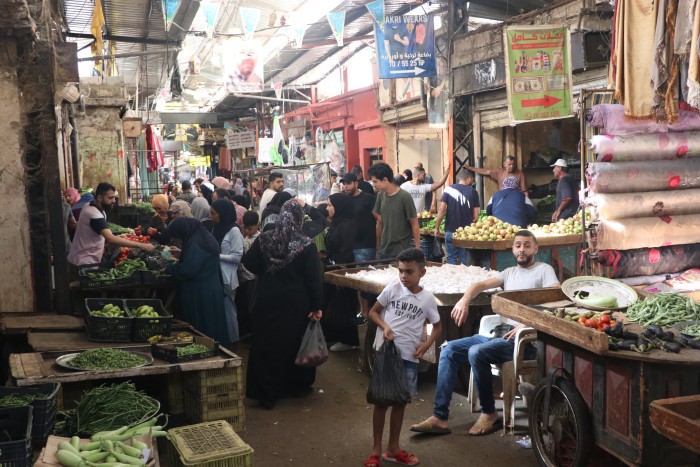
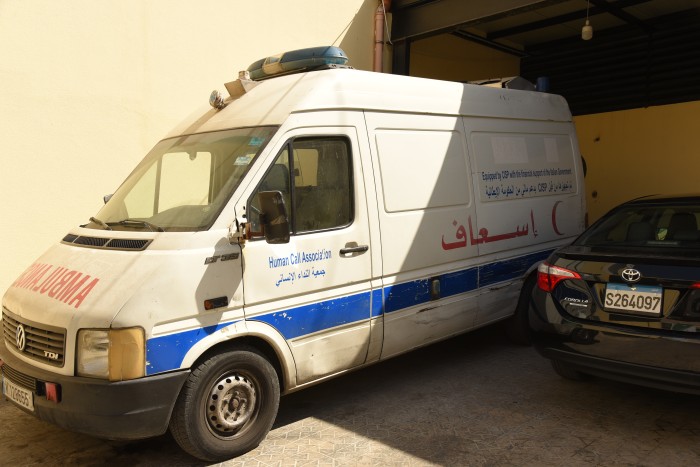
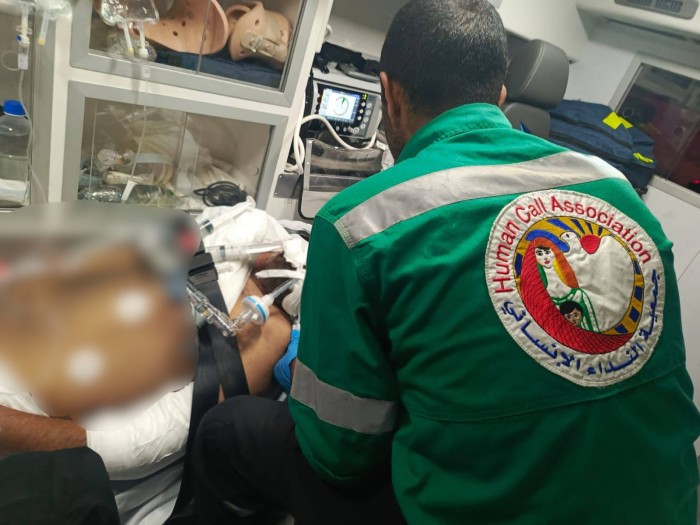
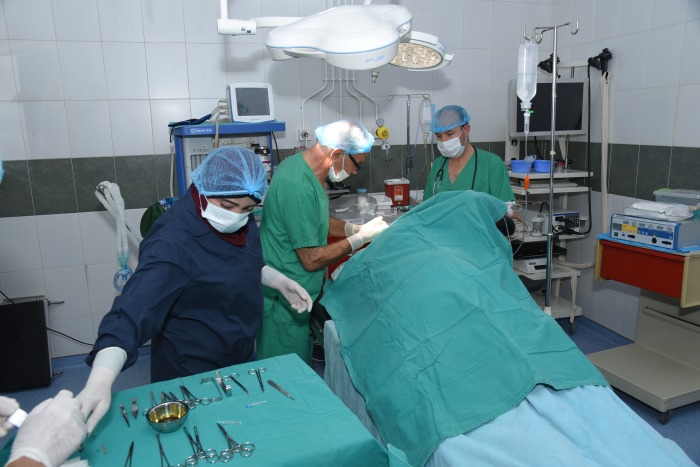
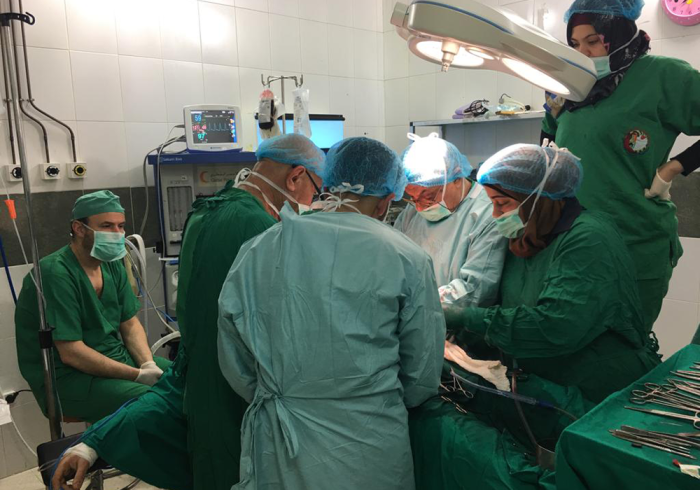
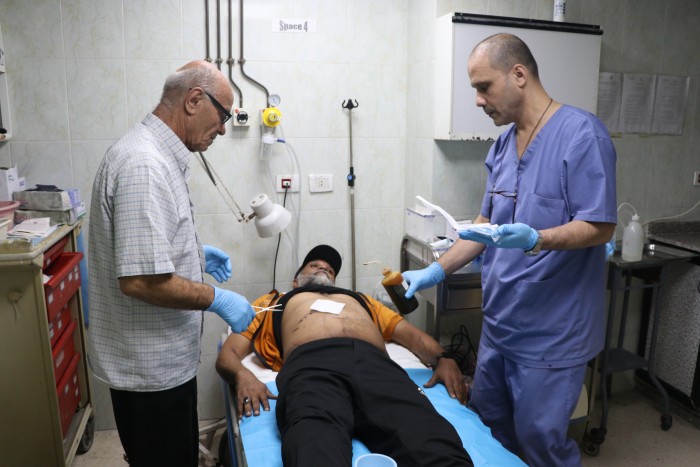
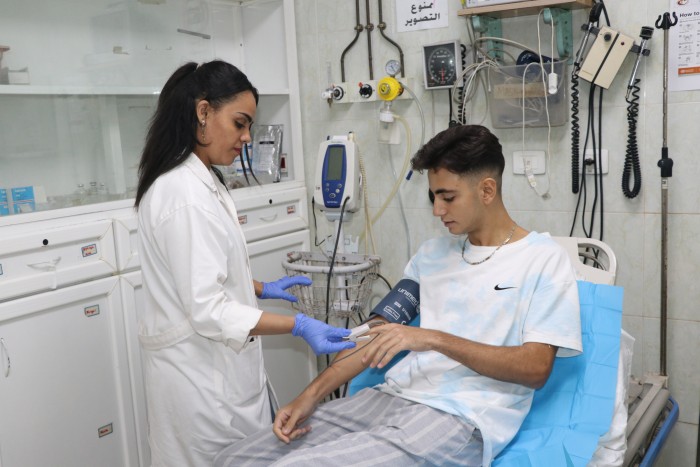
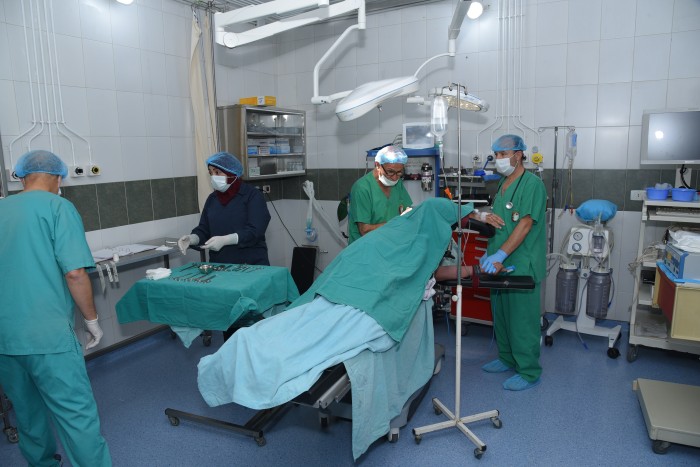
The team promoting this initiative consists of individuals from Catalonia and Spain with extensive experience in activism and solidarity. They have participated in campaigns such as the [‘Freedom Flotilla’](https://freedomflotilla.org/), which attempted to break the blockade on Gaza by sea in 2010, and coordinated trips with international observers to Palestinian camps in Lebanon, such as [‘Bridge to the other side’](https://www.youtube.com/watch?v=lWYVeG-X8mE), which in 2008 brought Catalan politicians, journalists, and artists to the camps. They have been supporting the Human Call Association for years and are well-acquainted with the organization’s professionalism in delivering healthcare services to the community.
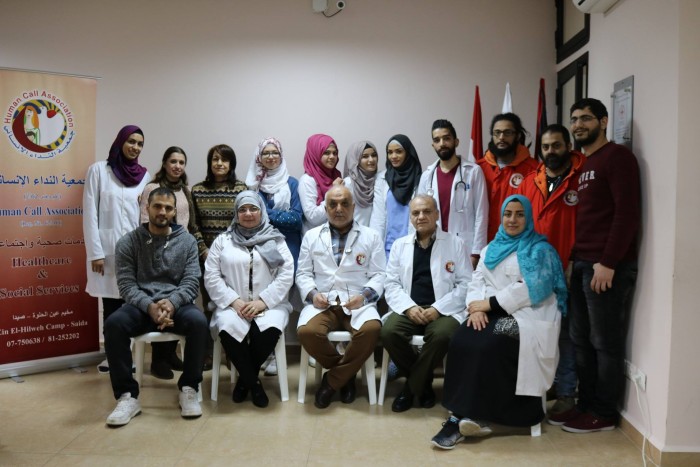
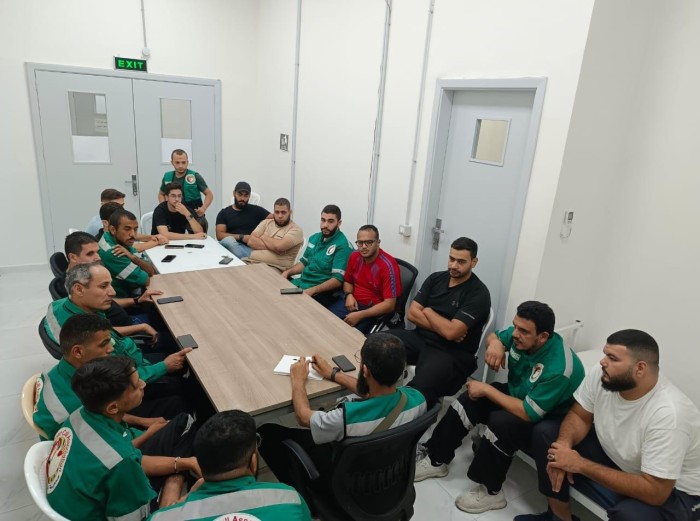
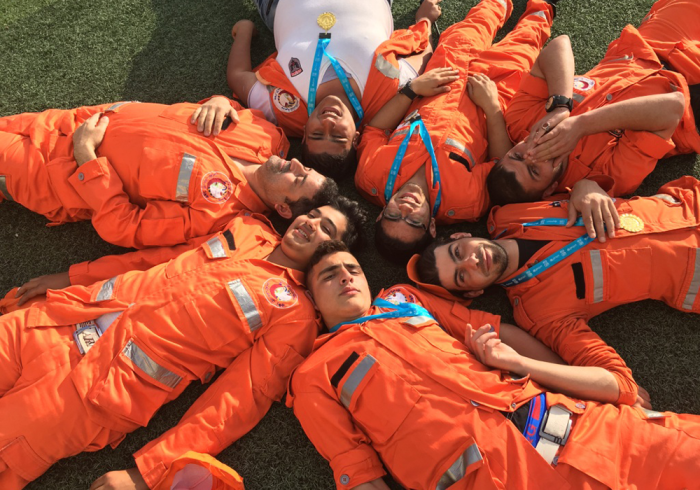
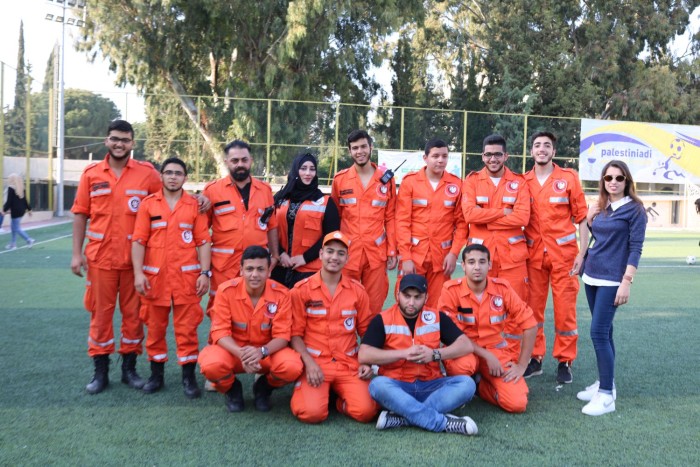
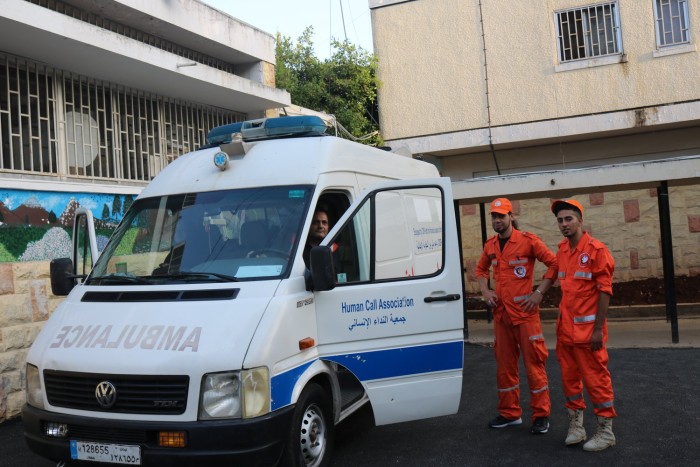

With this project, we aim to support the Human Call Association in implementing the Emergency Preparedness Plan (EPP) for Al-Nida’a Hospital. The goal is to optimize the hospital’s emergency response capacity and resource utilization in the event of mass casualty incidents (MCI).
Struggle
A personalized thank you letter or email from the hospital, including a short story about how your support is making a difference.

> 15 Co-financiers
Solidarity
A personalized thank you letter or email from the hospital, including a short story about how your support is making a difference. + A digital “Supporter” certificate, recognizing the donor’s contribution.

> 07 Co-financiers
Uplift
A personalized thank you letter or email from the hospital, including a short story about how their support is making a difference. + A digital “Supporter” certificate, recognizing the donor’s contribution + A video message from a hospital staff member or healthcare worker, thanking them for their support.

> 10 Co-financiers
Revolution
A personalized thank you letter or email from the hospital, including a short story about how your support is making a difference. + A digital “Supporter” certificate, recognizing the donor’s contribution + A video message from a hospital staff member or healthcare worker, thanking them for their support. + Recognition as a major donor on the hospital’s digital donor wall.

> 04 Co-financiers
Liberty
Recognition as a major donor on the hospital's digital donor wall. + Personal thanks from the hospital director.

> 01 Co-financiers
Life
Recognition as a major donor on the hospital's digital donor wall. + Personal thanks from the hospital director.

> 04 Co-financiers